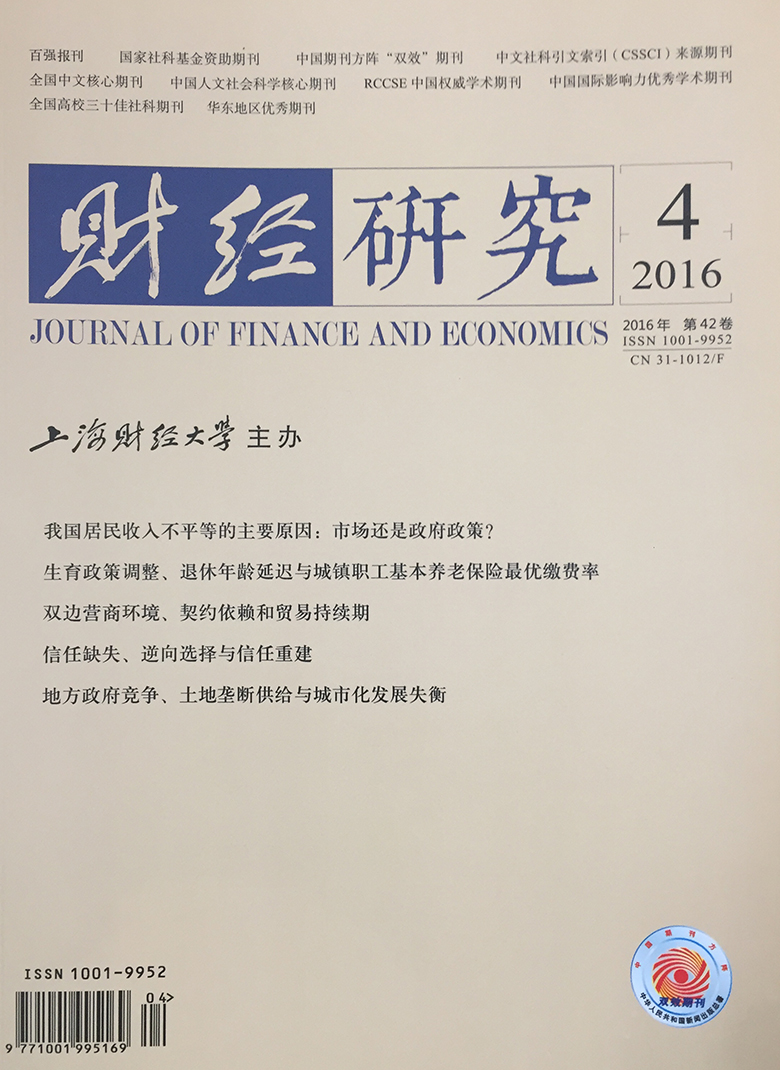A country's income inequality is mainly determined by market factors and government income redistribution policy. Based on the data from China Household Income Project(CHIP), this paper calculates the Gini coefficients of market income and disposable income in China, and compares with developed countries to find reasons for the income inequality in China, resulting from market power or insufficient implementation of income redistribution policy. It shows that the gap between China and developed countries is not wide from a perspective of the Gini coefficient of market income. The unobvious effect of income redistribution policy mainly accounts for more serious income inequality in China than developed countries. The increase in the intensity of implementing redistribution policy like transfer payments is a key route to the alleviation of income inequality in China at present.
 / Journals / Journal of Finance and Economics
/ Journals / Journal of Finance and EconomicsJournal of Finance and Economics
LiuYuanchun, Editor-in-Chief
ZhengChunrong, Vice Executive Editor-in-Chief
YaoLan BaoXiaohua HuangJun, Vice Editor-in-Chief
Main Reasons for Income Inequality in China: Market or Government Policy?
Journal of Finance and Economics Vol. 42, Issue 04, pp. 4 - 14 (2016) DOI:10.16538/j.cnki.jfe.2016.04.001
Abstract
References
Abstract
Cite this article
Cai Meng, Yue Ximing. Main Reasons for Income Inequality in China: Market or Government Policy?[J]. Journal of Finance and Economics, 2016, 42(4): 4–14.
Export Citations as:
For
ISSUE COVER
RELATED ARTICLES




 7525
7525  5372
5372

